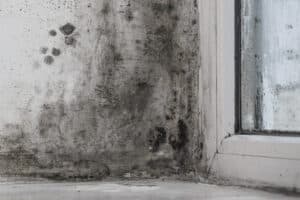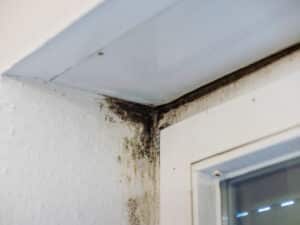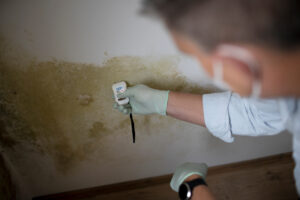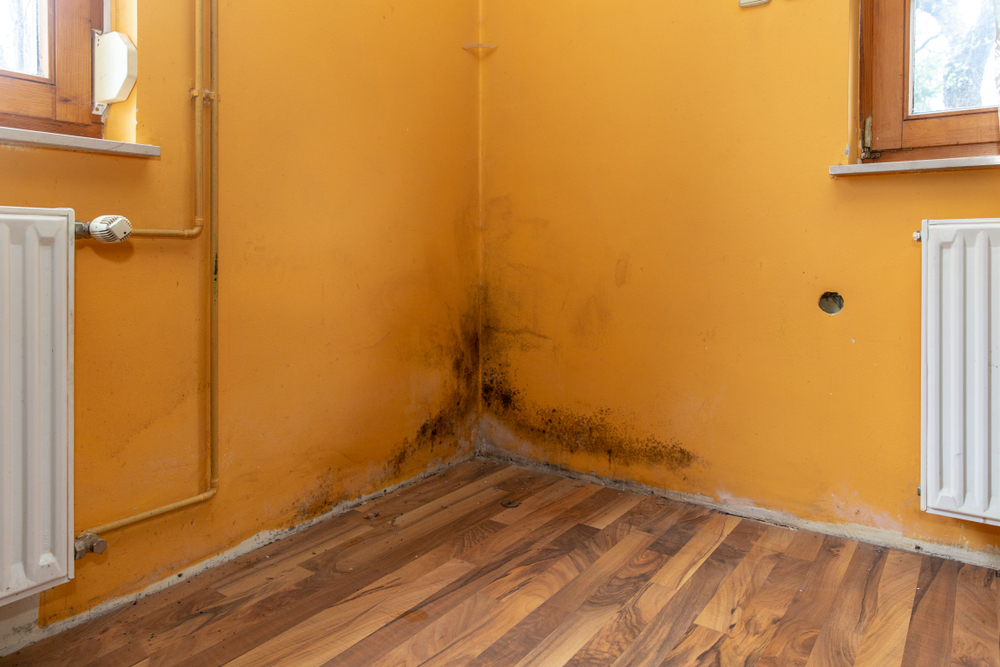
Put a Stop to Mold
One of the most important aspects of being a homeowner is keeping your home in the best shape possible. This includes scheduling repairs when needed, mowing the lawn, taking out the trash, and keeping it clean.
The cleanliness of your home can have a large impact on your quality of life. It can make it difficult and dangerous for family members to get around the house, you risk inviting unwanted pests inside, and you could be influencing your family’s health.
Mold growth is a common problem we see in homes that can severely affect your living environment. The growth and spread of mold are controllable if you follow professional advice and make an effort to keep a clean home.
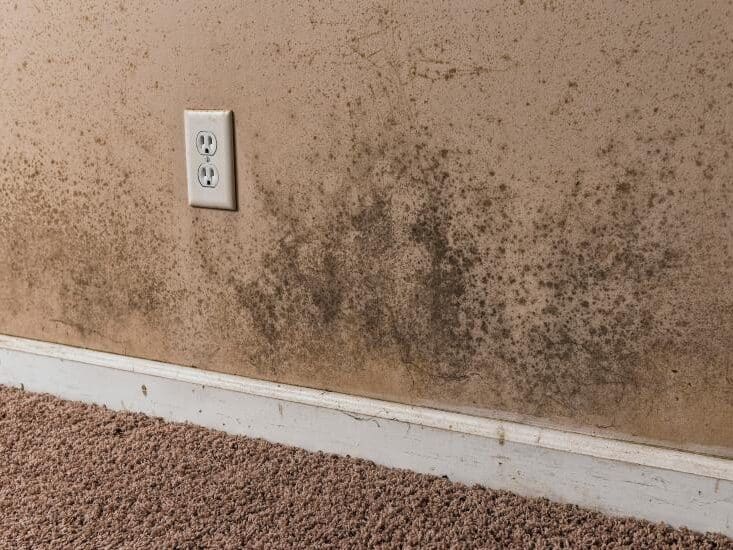
How Mold Affects Your Health
Mold lives all around us and is essential for breaking down materials in nature. In our homes, however, mold is a menace and can be more harmful to the elderly, children, and those with allergies or asthma. When gathered in a large number, mold can have the following effects on your health:
- Watery eyes
- Runny nose
- Sneezing
- Coughing
- Wheezing
- Difficulty breathing
- Headaches
- Fatigue
If you’re consistently exposed to mold, your sensitivity to these reactions will only increase and your immune system will weaken.
How Mold Grows
Mold reproduces through spores that are not individually visible to the human eye. However, as they settle and find a place to grow and spread, they quickly make themselves known. The perfect spot for mold growth? A wet environment or where there is food for them to feed on and break down.
This is why your bathroom, basement, and kitchen are most at risk of developing a mold problem.
Preventing Mold
When you find mold, it is best to take action to get rid of it straight away as it can spread very quickly.
In Wet Spaces
The best way to keep mold from growing and spreading is to control the dampness in high moisture areas. Do your best to find and get rid of puddles of standing water and damp towels and rugs. Be sure to clean and disinfect the area with mold-killing solutions and do so on a regular basis. Repairing leaks as soon as you spot them is also an important task in order to keep mold from quickly developing. Remember, it can take only two days for growth to begin.
In kitchens and bathrooms, your exhaust fans should always be used when showering or cooking as they will reduce humidity. In your basement, keep an eye on ventilation, and insulate walls.
If your area is having an especially humid season, you may want to consider purchasing a dehumidifier for additional humidity help.
Near Food
Unfortunately, mold growth is inevitable for certain types of food. We’ve all had those days when we’ve pulled out the loaf of bread to make toast, only to find a green, gross mess on the crust. When this happens, the best thing is to throw the item out immediately.
One of the best ways to prevent molding food is to keep a clean refrigerator. Keep an eye out for old food and throw it out once it becomes unusable as mold can easily spread to other items in your refrigerator.
Move opened, perishable food to sealable containers and try to eat leftovers within a few days of cooking.
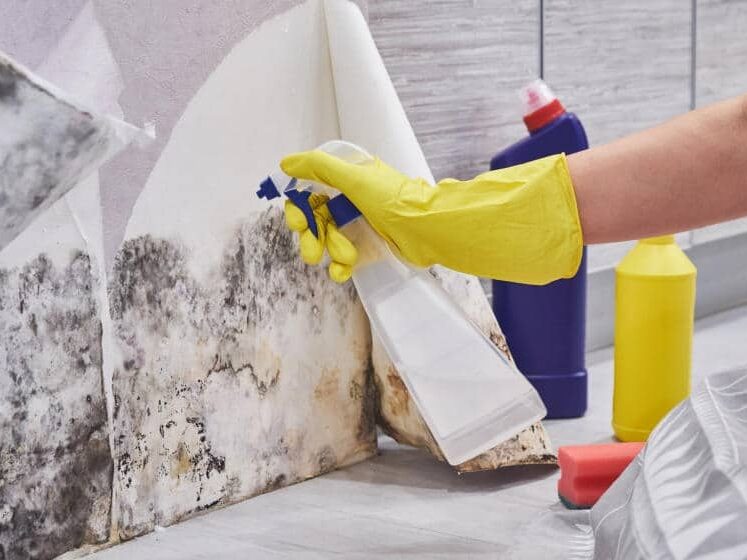
How to Get Rid of Mold in Your House
Getting rid of mold in your house is important not only for maintaining a clean and healthy living environment but also for preventing potential health issues. Here’s a step-by-step guide on how to effectively remove mold from your house:
- Identify the Source: Before you start cleaning, identify the source of moisture that’s causing the mold growth. Addressing the root cause of moisture is crucial to prevent mold from coming back.
- Safety Precautions:
- Wear protective gear, including gloves, an N95 respirator mask, and eye protection to avoid direct contact with mold spores and the cleaning agents.
- Ensure proper ventilation in the area you’re working in.
- Containment:
- Seal off the affected area with plastic sheets and tape to prevent the spread of mold spores to other parts of the house.
- Remove Items: Clear the area of any items that have been affected by mold. These items might need separate cleaning or disposal if they cannot be saved.
- Dry Out the Area:
- Use dehumidifiers and fans to thoroughly dry the area. Mold thrives in damp environments, so reducing humidity is essential.
- Cleaning:
- For non-porous surfaces (tiles, glass, metal):
- Mix a solution of water and detergent or a specialized mold cleaner.
- Scrub the affected area with a brush or scrubbing pad.
- Rinse with clean water and dry the area.
- For porous surfaces (drywall, wood):
- It’s often best to remove and replace moldy materials like drywall, as it’s difficult to completely remove mold from porous surfaces.
- For non-porous surfaces (tiles, glass, metal):
- Use Natural Remedies:
- White vinegar: Spray undiluted white vinegar on the moldy surface, let it sit for an hour, then scrub and rinse.
- Baking soda: Create a paste with water and baking soda, apply it to the moldy area, scrub, and rinse.
- Commercial Mold Cleaners:
- There are various mold cleaning products available in the market. Follow the instructions on the product’s label for safe and effective use.
- Preventive Measures:
- Fix any leaks or sources of moisture that contributed to mold growth.
- Improve ventilation in areas prone to humidity.
- Use exhaust fans in bathrooms and kitchens to reduce moisture.
- Regularly clean and maintain areas prone to mold growth.
- Seek Professional Mold Remediation:
- If the mold infestation is extensive or in hard-to-reach areas, consider hiring a professional mold remediation service. They have the expertise and equipment to handle severe mold problems.
Remember, mold removal can be challenging, and improper cleaning can worsen the issue or pose health risks. If you have allergies, respiratory issues, or other health concerns, it’s best to consult with a professional before attempting mold removal on your own.
Water Restoration Services
If your home has suffered water damage in any capacity, it is at risk of developing a mold problem if not properly restored. The team at W.B. Arthur is experienced in water removal, drying, and dehumidification in order to get your home clean and safe once again.
Contact us today for more information and to schedule your appointment.

